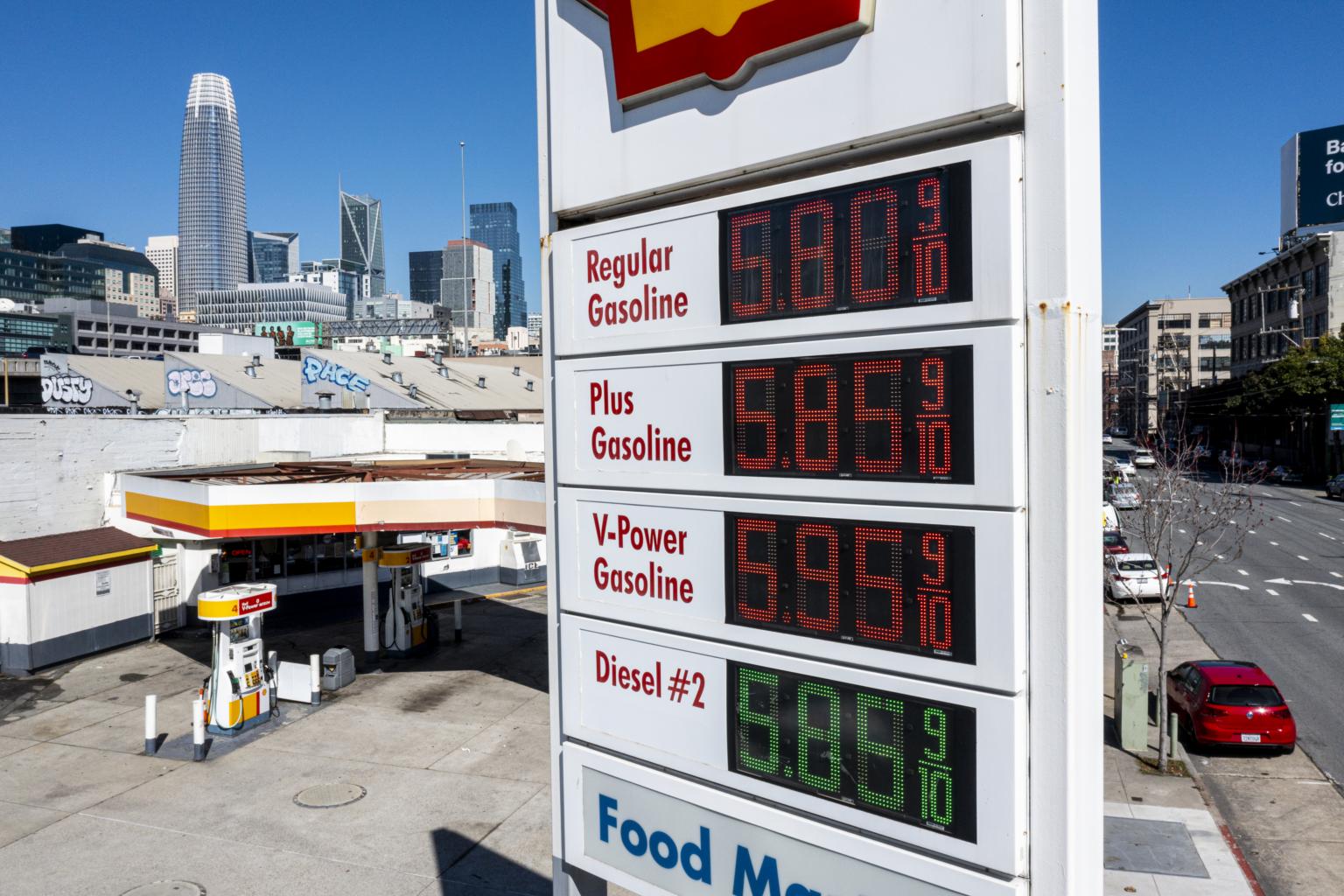Oil, commodity prices surge; stocks, rouble extend losses as Russian troops advance in Ukraine
Sign up now: Get ST's newsletters delivered to your inbox

Opec and its allies have not signalled a desire to boost production beyond their expected 400,000 barrels per day increase in April
PHOTO: BLOOMBERG
NEW YORK (WIRES) - Oil surged above US$110 a barrel on Wednesday (March 2), as traders started boycotting Russian crude after reports that Russian forces had captured the Ukrainian port city of Kherson during the day.
The price of European natural gas hit a new record - rising as much as 60 per cent - reviving the spectre of industrial blackouts in the region.
US-led sanctions on Russia have largely not specifically targeted the energy sector, but traders are shying away from trading Russian barrels, leading to big discounts on that oil and tightening supply for other kinds of crude.
Oil prices were already up earlier on Wednesday after the International Energy Agency (IEA) said member countries had agreed to release 60 million barrels of oil from their emergency reserves, in an effort to reassure a market rattled by worries that Russian crude would be impacted by sanctions or used by Russia as a political weapon.
However, news of that release - equivalent to less than one day of worldwide oil consumption - only underscored the market's fear that supply would be inadequate to cover growing energy disruptions.
The IEA announcement came on the eve of a key output meeting of the Organisation of the Petroleum Exporting Countries (Opec) and non-member producers, including Russia.
Opec and its allies, or Opec+, have not signalled a desire to boost production beyond their expected 400,000 barrels per day increase in April, despite entreaties from the United States and others.
Meanwhile, food prices are set to soar as wheat and corn stormed to multi-year highs, with a commodity index logging its highest surge since 2009.
Russia's invasion of Ukraine may lead to a global commodity crunch as supply chains get disrupted. China's top government officials have issued orders to prioritise energy and commodities supply security.
Palm oil has become the costliest among the four major edible oils for the first time as buyers rush to secure replacements, after shipments of sunflower oil from the top-exporting Black Sea region were disrupted.
Palm oil's record premium over rival oils could squeeze price-sensitive Asian and African consumers already reeling from spiralling fuel and food costs, and force them to curtail consumption and shift to rival soya bean oil, dealers said.
In Moscow on Wednesday, the ruble plunged to a record low of 110 to the US dollar and the stock market remained closed as Russia's financial system staggered under the weight of Western sanctions.
US President Joe Biden that day also banned Russian planes from US airspace, warning that Russian President Vladimir Putin had "no idea what's coming".
European stock indexes continued their second day of falls, while banking shares slid further after the European arm of Russia's Sberbank was forced to close. The MSCI world equity index, which tracks shares in 50 countries, fell.
The Straits Times Index lost just over 1 per cent to 3,244.40 on Wednesday, while major equity gauges across the region also closed in the red, except for South Korea, Australia and Malaysia.


